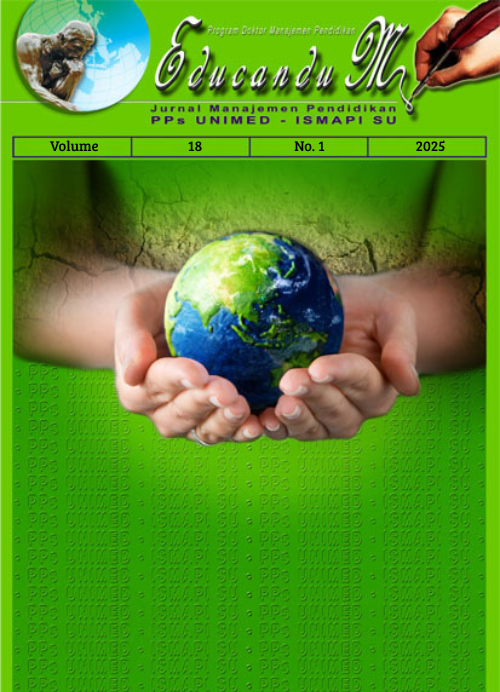Penguatan Profil Pelajar Pancasila melalui Pembelajaran Berbasis Keterampilan Abad ke-21
DOI:
https://doi.org/10.24114/em.v18i1.65752Abstract
Developing the Pancasila Student Profile represents a key initiative in modernizing Indonesian education for the 21st century by aligning Pancasila values with essential 21st-century skills, namely Critical Thinking, Creativity, Communication, and Collaboration (4C). This paper explores how adopting 21st-century learning approaches can cultivate students who are faithful, morally upright, globally minded, cooperative, self-reliant, analytical, and innovative. Employing a literature review method, the study draws on academic research and current educational policy frameworks. Findings indicate that learner-centered instruction and creative pedagogical strategies play a significant role in fostering both character and skills that reflect the principles of Pancasila. The paper advocates for a proactive role of educators as agents of change and underscores the necessity of embedding Pancasila values within the Merdeka Curriculum to support future-oriented education.References
Halisa, A. S. N., Wahyuni, A., & Saparuddin, A. S. (2024). Potret Implementasi Program Sekolah Penggerak di SDN Aroepala Makassar. Irfani.
Insani, N. H., Utomo, T. D., & Ulya, L. H. (2024). Aktualisasi Nilai Tetep, Antep, Mantep untuk Mewujudkan Profil Pelajar Pancasila Bernalar Kritis. Piwulang: Jurnal Pendidikan Bahasa dan Sastra Daerah.
Kemendikbudristek. (2022). Panduan Penguatan Projek Profil Pelajar Pancasila. Jakarta: Direktorat Jenderal Pendidikan Dasar dan Menengah.
Satya, H. H., Nursuciati, H., & Yuana, M. I. (2024). Pancasila sebagai Entitas dan Identitas Bangsa Indonesia dan Perwujudan Profil Pelajar Pancasila pada Pendidikan yang Kontekstual. Jurnal Pembelajaran Dasar.
Uzma, I. A., & Rahayu, Y. S. (2025). Efektivitas E-LKPD Berbasis Guided Discovery untuk Melatihkan Keterampilan Berpikir Kritis. Berkala Ilmiah Pendidikan Biologi.
Downloads
Published
How to Cite
Issue
Section
License
Copyright (c) 2025 EducanduM

This work is licensed under a Creative Commons Attribution-NonCommercial-ShareAlike 4.0 International License.










